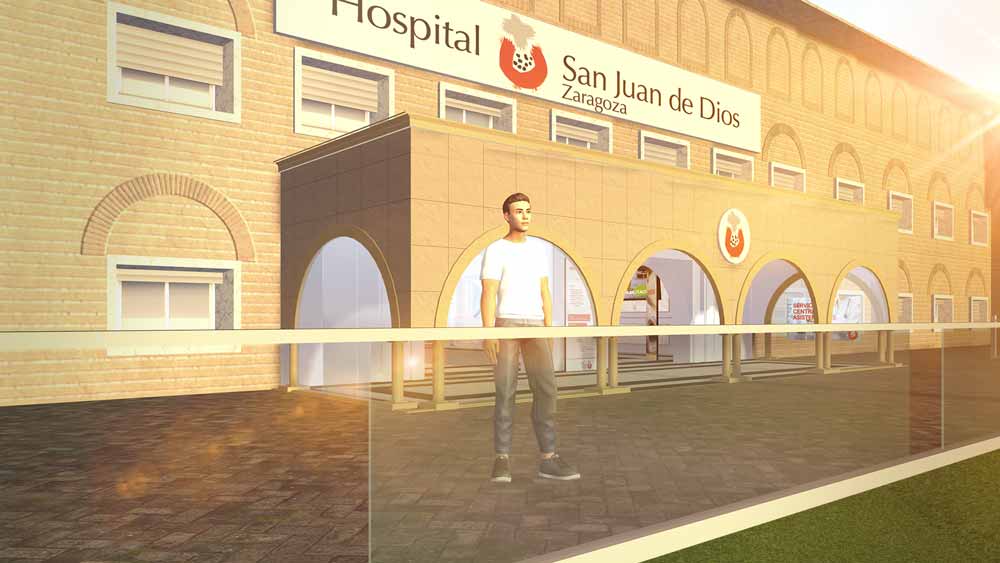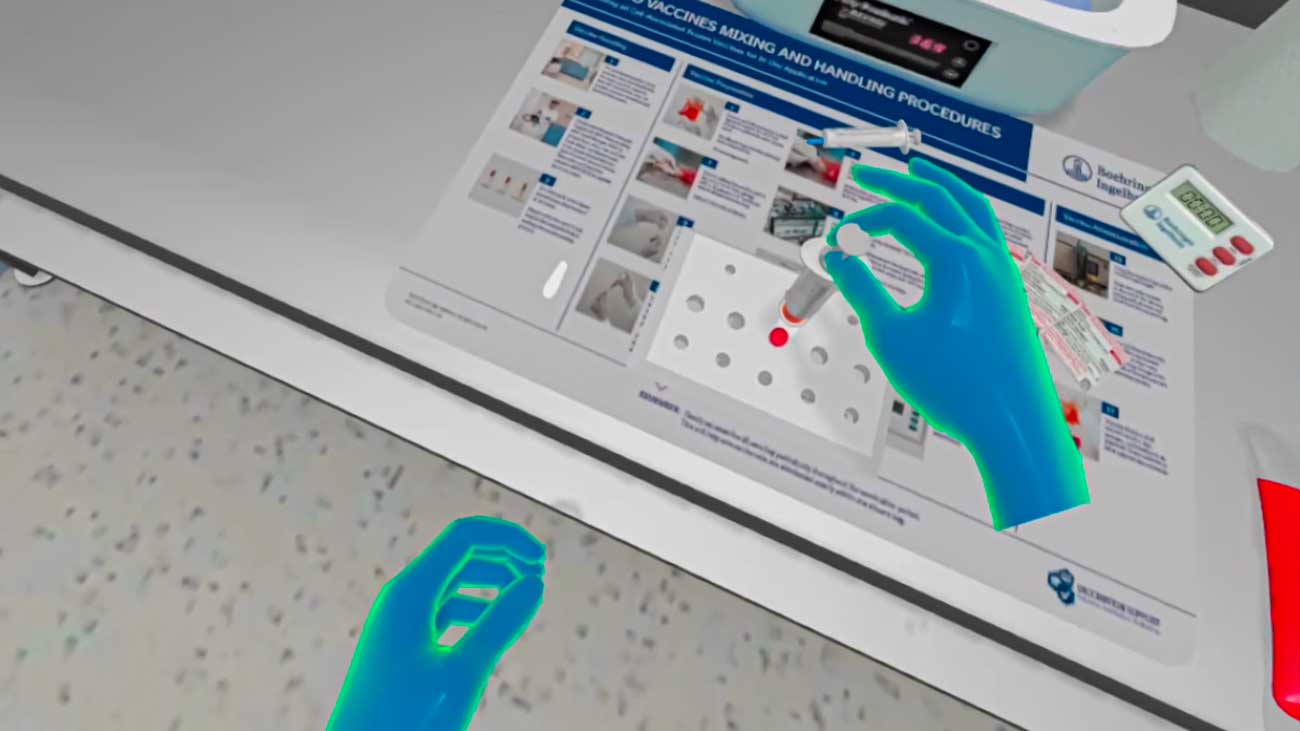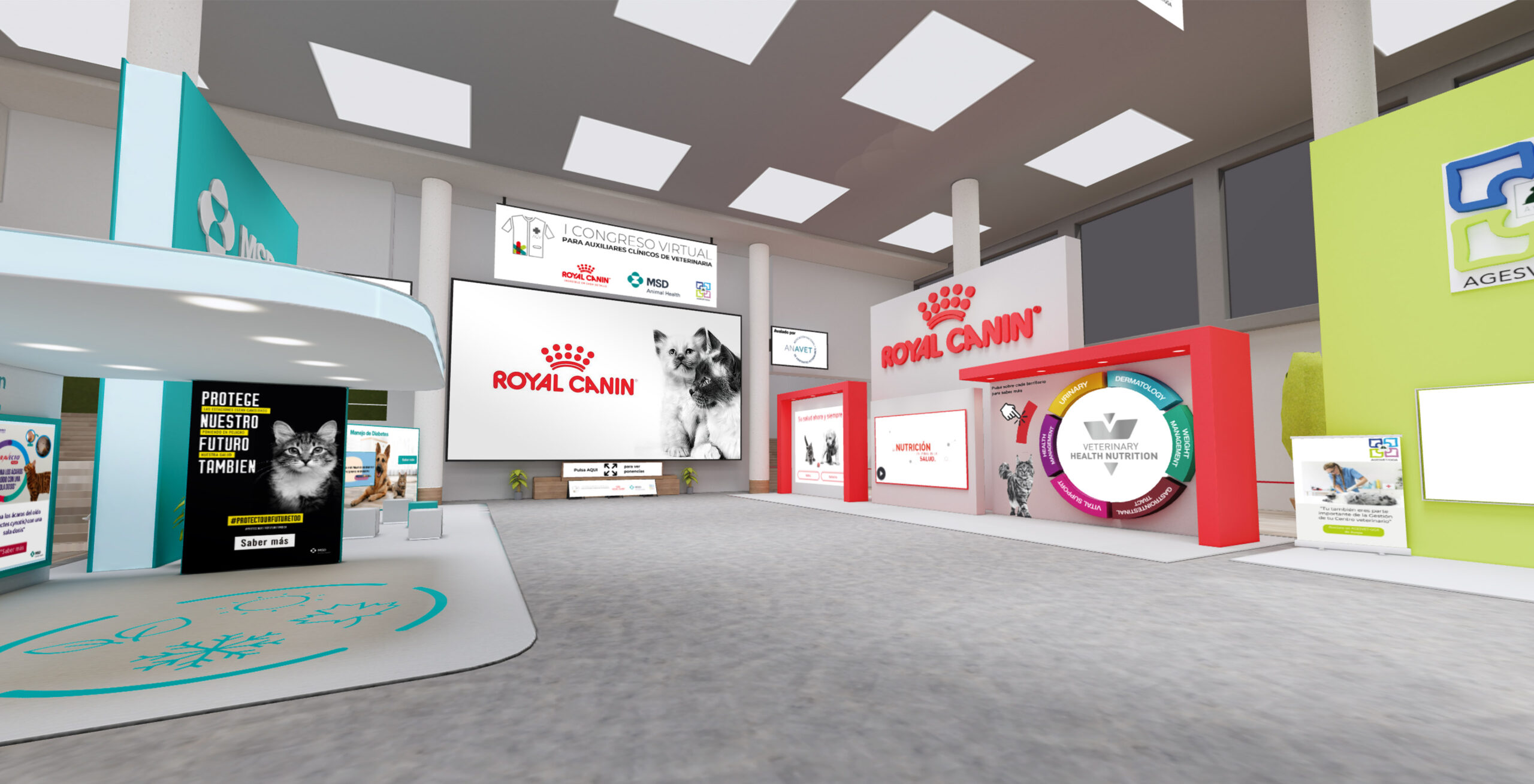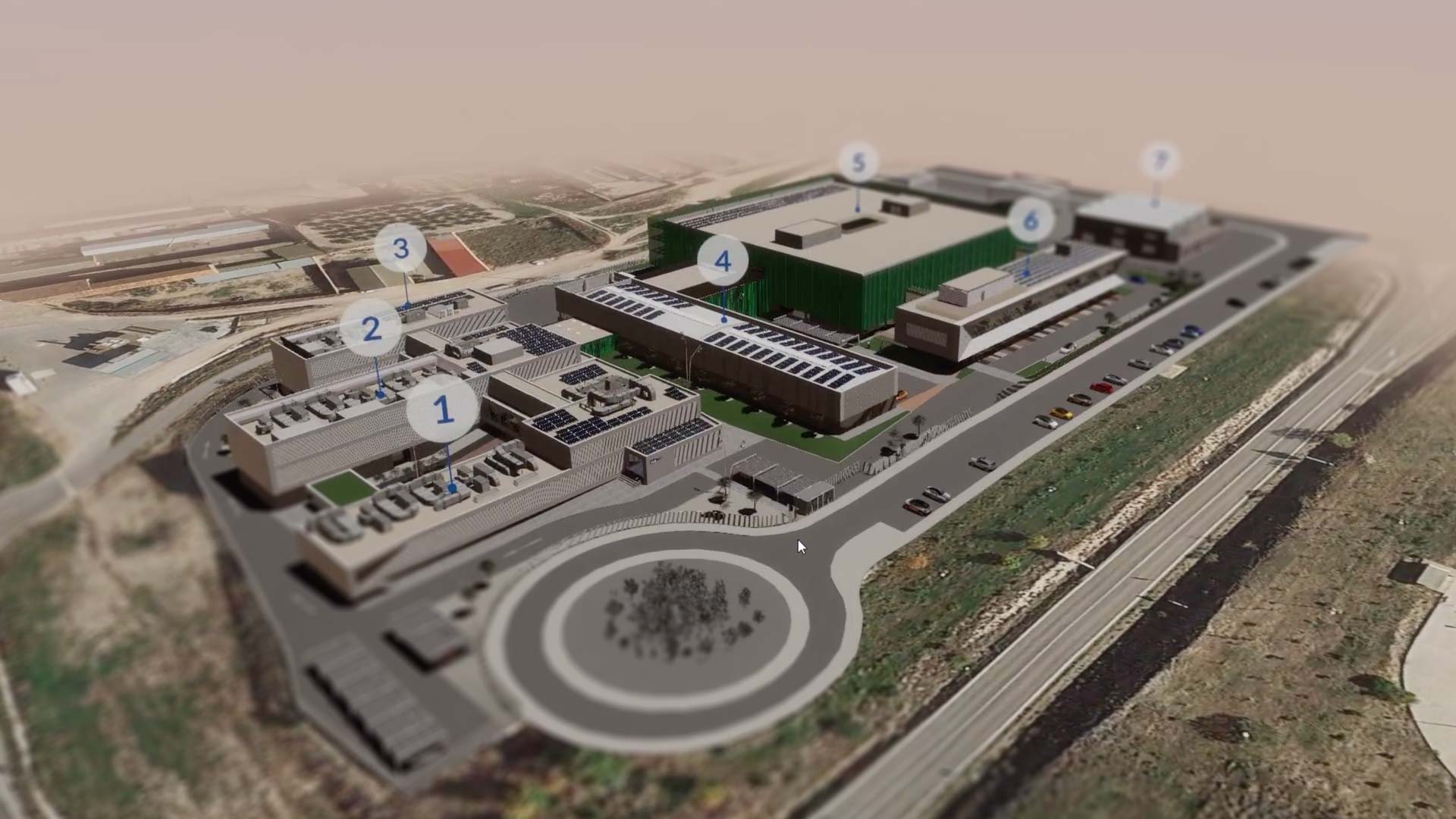Metaverse in medicine: applications and the future
The Metaverse or, as we call them in Imascono, the virtual spaces, are transforming medicine in ways that seemed unimaginable a few years ago. From the medical training with hyper-realistic simulations to the virtual medical consultation through AI avatars, This and other immersive technologies are revolutionizing the healthcare sector. Its main benefits include the cost reduction management and training, the global access to medical resources and the personalization of treatments for the patientcreating a more efficient and accessible healthcare system.
However, this progress is not without its challenges. In this article we explore how this technology is changing the landscape of medicine and what challenges and opportunities await us in the future.
Areas of application of the Metaverse in the health sector
The virtual world, spearheaded by the immersive web technology of the Metaverse, is opening up a new range of possibilities in medicine and, in particular, in the training of healthcare professionals and in patient care. Thanks to virtual spaces, healthcare professionals can now train, innovate and deliver care beyond an app, a website or a video call.
In these Virtual Spaces patients can enter a virtual hospital or outpatient center where they can access all the center's information and resources. In a much more intuitive and closer way, as in the virtualization project of their facilities developed by the San Juan de Dios Hospital. Next, we want to share with you the main areas of application of Metaverse in the health sector. From veterinary medicine to human or dental medicine and even medical insurance. The Metaverse opens up new fields hitherto unimaginable.

Medical consultation in the Metaverse
The medical consultation in the Metaverse allows access to medical care from home, without long waits. Through secure and private virtual consultationsprofessionals interact in real time with patients, eliminating geographic barriers and offering access to specialists, even in rural areas or developing countries. This technology is revolutionizing medical care, providing faster and quality access.
In this sense, the Artificial Intelligence applied to the healthcare field takes on special relevance, especially in the first diagnosis, in the symptom consultation. Here, it helps the patient to determine which specialist to contact and at the same time, it makes a small report of the conversation held with the patient to speed up and facilitate the doctor's dealings with the patient in his subsequent visit.
To learn more about AI in medicine we recommend you to visit our post Main benefits of the use of Artificial Intelligence in healthcare
Medical training
Medical training is one of the fundamental pillars of evolution in the healthcare sector, and the Metaverse is taking this process to a whole new level. Imagine performing surgery without physically being in an operating room, or studying human anatomy with a precision and detail never seen before. Thanks to immersive virtual environments and interactive infographics In this way, doctors and students have access to hyper-realistic simulations that allow them to practice procedures without any risk.
In the Metaverse, future healthcare professionals can interact with 3D models of organs, perform virtual surgery or attend lectures and workshops from anywhere in the world. This not only optimizes learning time, but also makes training more accessible, regardless of geographic location or available resources. As an example, we would like to highlight the Virtual Training developed by Boehringer Ingelheim for the training of healthcare professionals in the handling of its latest vaccine.
You may be interested in → Virtual Reality and medicine: applications in the healthcare sector
Drug development
The drug development process has historically been long and costly. However, the Metaverse is changing the way these investigations are conducted. Using 3D simulations and models, researchers can more efficiently analyze how drugs interact through simulations of the human body. This reduces testing time and the need for costly early-stage clinical trials.
This virtual environment also allows the creation of interactive laboratories where scientists can visualize the behavior of molecules and compounds in real time. The Metaverse opens doors to personalized treatments based on massive data analysis and predictive modeling. An example of this type of simulations can be found in the international company Merz AestheticsThe company specializes in aesthetic medicine and, through Virtual Reality, shows both patients and doctors the impact of their treatments in a simulated way.
Immersive diagnostics and therapies for patients
The Metaverse is marking a before and after in the field of health and medicineThe new treatment opportunities for a variety of physical and psychological conditions. Through immersive virtual environments, patients can experience simulations that allow them to interact with controlled scenariosand therapeutic exercises, and even receive more accessible and personalized medical care. These experiences provide a safe and comfortable space for patients, facilitating rehabilitation, cognitive therapy and desensitization processes, without the need to travel.
A clear example of this application is the Apetest projectlaunched by the Aragon Health Research Institutefocused on the early detection of eating disorders (ED) in adolescents. This pilot project combines gamified technology and accessibility with clinical questionnaires to identify early possible cases of ED. Facilitating interaction with children and adolescents in the detection of cases of juvenile mental health.
Benefits of the Metaverse in medicine
The Metaverse is revolutionizing the field of medicine, providing innovative solutions for diagnosis, treatment and medical education. Through interactive virtual environments and realistic simulations, healthcare professionals can improve the accuracy of their interventions, while patients access immersive therapies and rehabilitation in a more accessible and personalized way. In this section, we will explore how the Metaverse is transforming medicine and what concrete benefits it is bringing to patients and healthcare professionals.
Cost reduction
The Metaverse is helping to reduce costs in the healthcare sector, something that benefits both institutions and patients. By implementing immersive technologies, healthcare institutions are able to reduce expenses associated with training, at least in the first introductory topics where the important thing is to know each area of an operating room or the correct process of handling a drug.
In addition, the Metaverse eliminates travel and logistical costsWe have a strong commitment to the health system, both in terms of training and also in terms of patient care in the case of one-off consultations. All this contributes to a more sustainable and efficient healthcare system.
We invite you to visit the post → Potential of Augmented Reality in Medicine
Global access to medical resources
One of the greatest benefits of virtual environments is their ability to democratize access to medical resources. Thanks to virtual platforms, anyone, no matter where they are located, can access specialized treatments, medical consultations and high-level training.. This is especially crucial in rural areas or countries with less medical infrastructure.
One of the most noteworthy examples in this area is the case of the Royal Canin and MSD Animal Health Virtual Congresstwo of the largest veterinary product companies joined forces to offer more than 20 hours of virtual lectures with the country's leading veterinary experts.
Main challenges of the Metaverse in health and medicine
Despite its transformative promises, the implementation of the Metaverse in the medical field presents several challenges.
- The data privacy is one of the most important, as the digitization of medical information must comply with strict security and cybersecurity standards to ensure the trust of patients and institutions.
- The adaptation of health professionals is also crucial, as it requires training in the use of new immersive technologies and in the integration of these systems as allies in medical care and training.
- In addition, there is a risk that technology gaps will The use of digital technology in the region will exacerbate inequalities, especially in regions with limited access to digital infrastructure, which requires strategic plans to ensure equitable adoption.
At Imascono we are specialized in the development of Virtual Spaces, virtual spaces and gamified environments focused on companies. User-empowered online worldsIn addition, pre-sales are gamified and the mechanics of video games and the Metaverse are incorporated into the value proposition of the companies.
Interested in learning more about virtual spaces and how to use them? Go to contact with us and our team of engineers and designers will be happy to answer all your questions.




